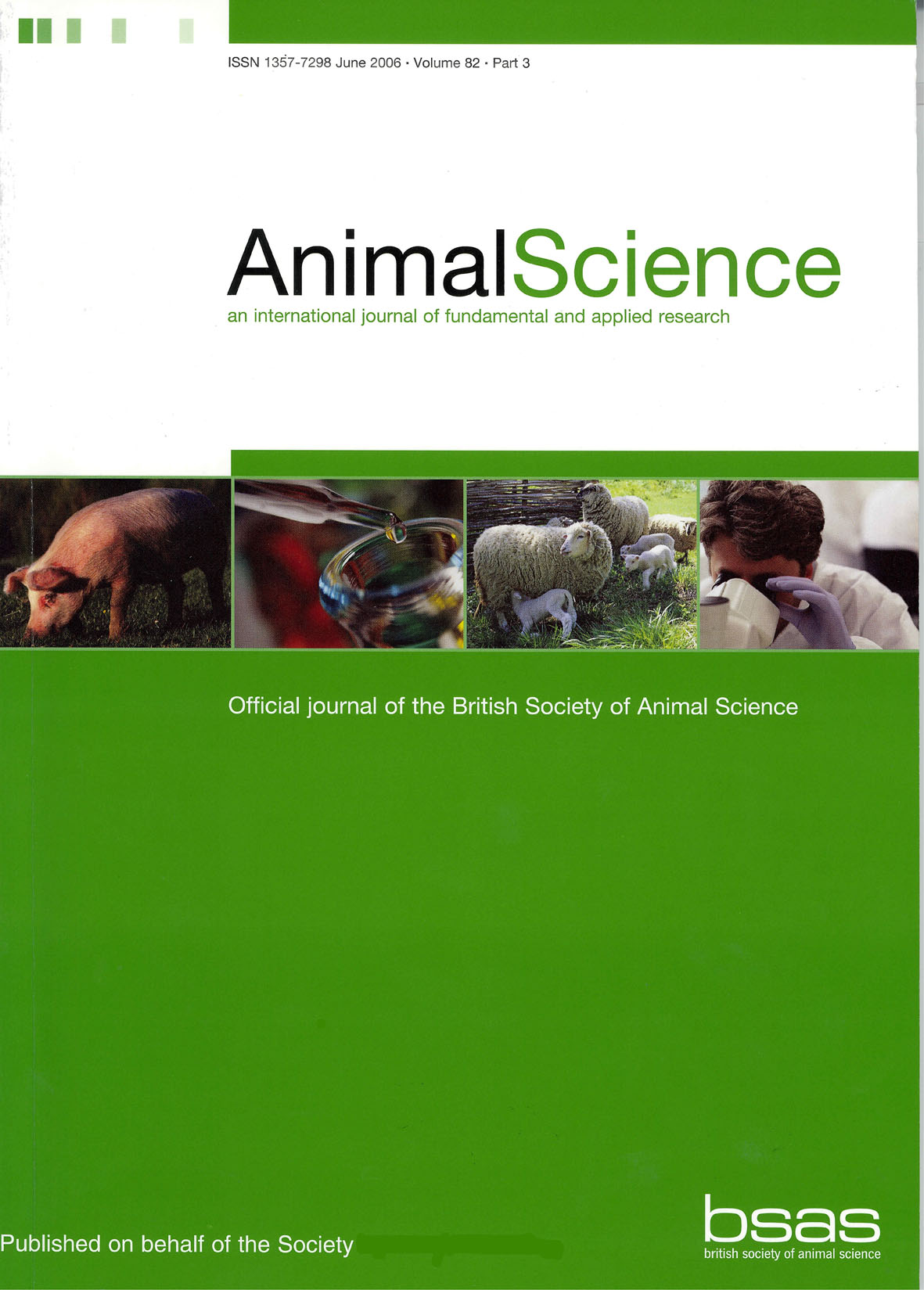Article contents
Genetic parameters for osteochondrosis in Danish Landrace and Yorkshire boars and correlations with leg weakness and production traits
Published online by Cambridge University Press: 18 August 2016
Abstract
The purpose of this study was to estimate the heritabilities and the genetic correlations of osteochondrosis in different joints and to estimate genetic correlations between osteochondrosis, leg weakness and production traits. The humerus condyles, anconeal process, distal ulna growth line, femoral condyles, distal tibia and medial trochlear ridge of talus on both sides of the animals were examined radiologically for osteochondral lesions and scored from 1 to 5 with increasing severity. The boars were also scored for 13 different leg weakness traits on a scale from 1 (normal) to 5 (very severe changes). During a 3-year period, a total of 2042 Landrace boars from 256 sires and 1946 Yorkshire boars from 240 sires were examined at a mean weight of 93 kg. The data were analysed by animal models for each breed. The Landrace was found to be more severely affected than the Yorkshire regarding osteochondrosis in all localities expect the anconeal process. The genetic correlations between left and right side scores of the osteochondral trait were close to 1. This indicates that genetically the same trait is measured in the left and in the right side of the animal. The heritability of average osteochondrosis scores was low to moderate ranging from 0•08 to 0•39 (s.e. between 0•02 and 0•04). The genetic correlations between osteochondrosis in the different body localities were low, indicating that osteochondrosis is not a generalized disease. The Landrace was more severely affected than the Yorkshire regarding all leg weakness symptoms except buck-kneed forelegs, forelegs turned out and weak pasterns on forelegs. The heritability of leg weakness traits ranged from 0•01 to 0•35 (s.e. between 0•01 and 0•04). Genetic correlations between osteochondrosis and leg weakness showed a clear picture for the Yorkshire breed regarding the humeral condyles: positive correlations with buck-kneed forelegs, forelegs turned out, stiff in front and rear. In both breeds osteochondrosis in femoral condyles showed a high positive correlation with hind legs turned out and a lower positive correlation with stiff in front. The sum of osteochondrosis traits (sumost) was unfavourably genetically correlated with daily gain, whereas the sum of leg weakness traits (sumleg) was unfavourably correlated with lean meat percentage in both breeds. The correlation between the summary measures sumost and sumleg was 0•09 (s.e. 0•11) in the Landrace and –0•07 (s.e. 0•12) in the Yorkshire.
Information
- Type
- Research Article
- Information
- Copyright
- Copyright © British Society of Animal Science 2000
References
- 74
- Cited by

